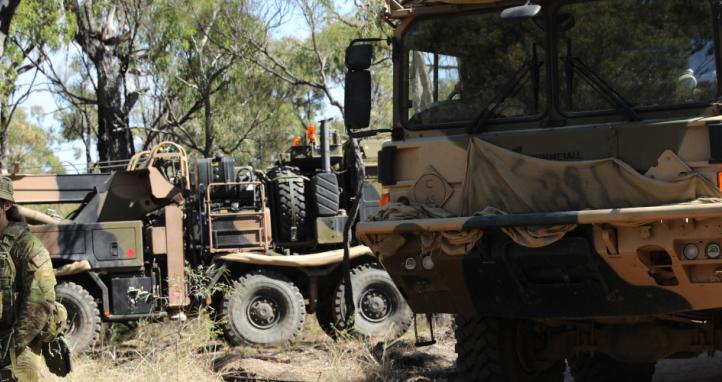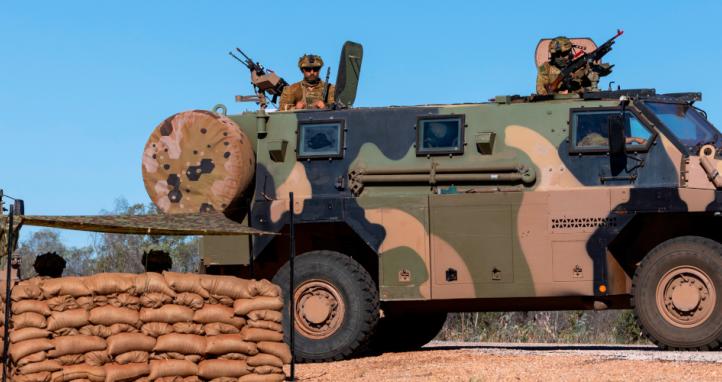This article was a submission to the 2022 Cove Competition.
Before I provide my reflections on my first year in my first appointment as the Regimental Sergeant Major (RSM) of the 1st/19th Battalion, the Royal New South Wales Regiment (1/19 RNSWR), I’d like to congratulate all those that will be entering their first appointment as RSMs in 2023. For me, it has been an interesting, challenging, educational and highly rewarding year and I look forward to 2023.
I have broken my reflections down and numbered them all as number 1. I cannot prioritise any of these points as more important than the other, and hope – at the very least – they provide some insight into your transition.
- Communication
The key to success. Having the ability to effectively communicate across all levels is critical. You will find yourself on a regular basis, and for many different reasons, talking to key staff across the battalion, across the brigade, within career management, non-government organisations, associations; this list is endless. And whilst communication takes many forms, I highly recommend picking up the phone and having the discussion and following up with email, if necessary. ‘Be connected’.
- Invest in YOU
One the biggest challenges I have found this year is time. You will never have enough. Whilst I think I have always been effective in managing time and tasks, it hit a new level this year. We will all be invested in unit business and the people around us – more than often neglecting ourselves. A task as simple as completing a soldier career planning tool for yourself is not that simple when you are looking to invest thought into your future options. We will always care for our team, but remember you are also important.
Look for opportunities to remain current and relevant. Whilst we absolutely have a responsibility to our unit; we also owe it – to the entire organisation – to source opportunity for continual personal development. Grow and give back to the organisation.
- Invest in your team
Take the time to develop and conduct professional military education (PME) or look for other training opportunities for your team, particularly your training warrant officers (TRGWOs). Your TRGWOs will spend considerable time enabling training for their organisations, and just like you, they will become invested in everything, other than themselves. It is rewarding to train them, empower them and setting them up for success, not just within your organisation but for all their future appointments. Your SERCAT 7 team are your most important asset and the more time you can invest in them, the higher the return you will receive.
- Know the Unit
An army reserve unit is a different beast. Whilst I have spent time in the 2nd Division (2 Div) as a TRGWO, it was within the Regional Force Surveillance Unit (RFSU) with Northwest Mobile Force (NORFORCE). It was not the same. I was under (not) prepared for my service in an Army reserve unit. I had just returned from two years as an instructor at the Marine Corps Air Ground Combat Centre in the US, had been out of the Australian Army system for two years, and literally had to learn a lot – and fast.
A big part to knowing the unit is to understand the critical capabilities, the critical requirements, and the critical vulnerabilities of that organisation. Learn and get to know the different organisations within your area of operations, particularly any unit associations. These groups hold a wealth of corporate knowledge and are a valuable resource. I have always been interested in our history and understanding where we have come from. Learning and speaking with the association and developing a greater understanding of 1/19 RNSWR has done nothing but remind me of all the reasons we join the service and developed a greater ability to maintain a linkage with the past to the present.
- Be Yourself
You are where you are today because of the person you have always been. Your performance over many years has now been rewarded with your promotion and appointment as an RSM. All of this achieved because of YOU. I have been told and heard many times, to be the person the organisation needs, i.e., ‘Be the RSM that the unit needs’. I believe the best way to be that person is to really understand the unit. Whilst I believe the phrase is important, a key part to that is about being who you are. Be yourself.
- Be the unit’s accountability buddy
Accountability has always been that quality that drives me. Driven by pride and professionalism, I hold myself accountable and more so than ever, as the RSM, I hold my teams accountable. Provide clear guidance and timelines and hold your teams to account; be their accountability buddy.
- Agile and flexible
No day is anything like another. The issues are all the same but different, and if I can highlight one, that will likely frustrate many… nothing happens quickly in a SERCAT 5 world. We have a lot of amazingly talent individuals within the SERCAT 5 units. Humans that are committed to two professions and in most cases, doing extremely well. But you generally only see them for three hours a week. If it doesn’t get sorted in that three hours, it waits seven days. Key parts to your success and mental stability – linked heavily with communication – is to be agile and flexible.
- Prioritise
Email is one of those disablers that I learnt as an operations warrant officer (OPSWO); we can very quickly turn ourselves into human modems. We have all had those days where we do nothing other than read and reply to email, particularly if we have spent time in the field away from our desk and the emails don’t stop. You will need to be careful and mindful of how much time email can take out of your day. Each day I prioritise time to email and otherwise avoid the distraction and instantaneous replies to an email. If it is important, they will call.
- Use the network
Ensure you tap into the networks around you. Being the RSM of a unit can be a lonely place: you are the only one. All your previous ranks have seen multiple peers within the unit that allow you to discuss issues and ideas. Build your network through your course cohort, tap into the other RSMs within the brigade and remember you have a brigade RSM as a mentor. I have been extremely fortunate to have excellent mentors, to include Tier C RSMs in my first year. They have contributed valuably to my growth.
- Be seen
For those with appointments in a 2 Div unit, you will most certainly have dislocated locations within your organisation – distance between you and the soldier. It is thus important to use every opportunity you can to be seen and talk to the soldiers.
- Relationships
Relationships built through mutual trust. Whilst we must build a rapport at all levels, I highly encourage that you engage with your commanding officer (CO) sooner rather than later. For many of us, we will have a SERCAT 5 CO and who in almost all instances, we will have never met or worked with previously. Forming this command team early (before taking up your appointment) sets the foundation of success. I was extremely lucky to have my CO reach out to me whilst I was still in the USA, and subsequently had several discussions prior to returning home.
I hope that these reflections provide some insight to assist you in the transition and I again congratulate you on your appointment and wish you nothing but good luck and success.










I am posting into the 1st/19th next year as the ADJT and these tips are a good reminder. I have previously had postings as ADJT for a reserve health battalion and more recently backfilling in a reserve SOCOMD unit, so know the challenges of both SERCAT 5 units with dislocated staff / units and the tempo of a busy reserve unit.
These tips are a good reminder and as mentioned will serve any members posting into a SERCAT 5 unit well.
Thanks again!